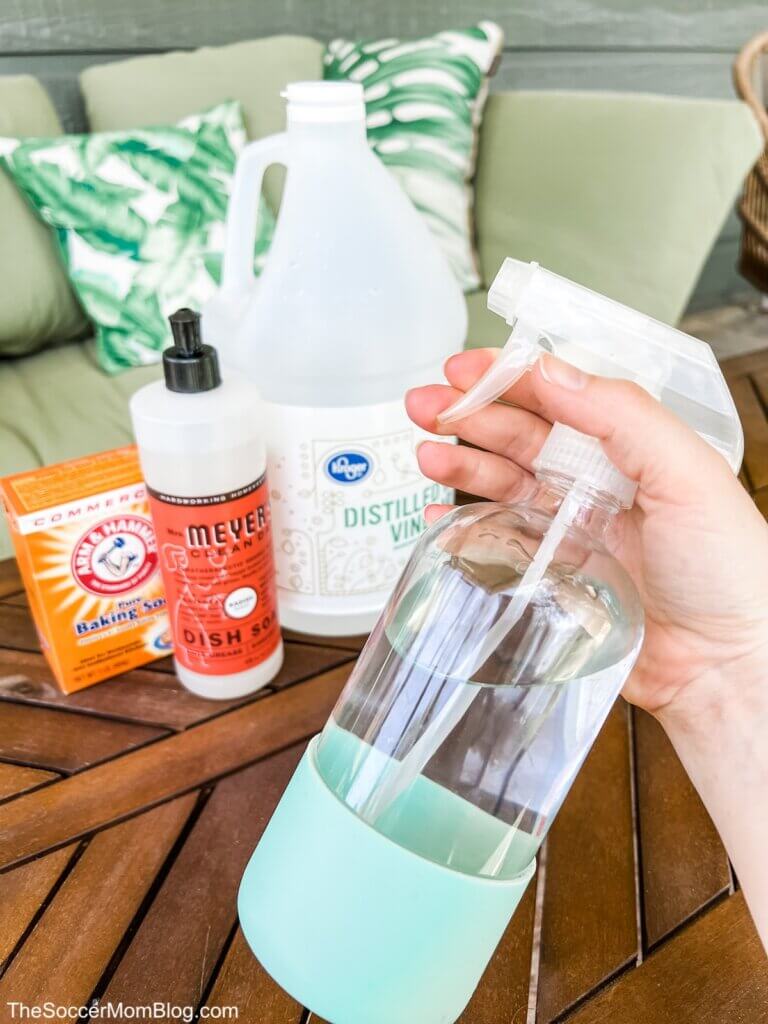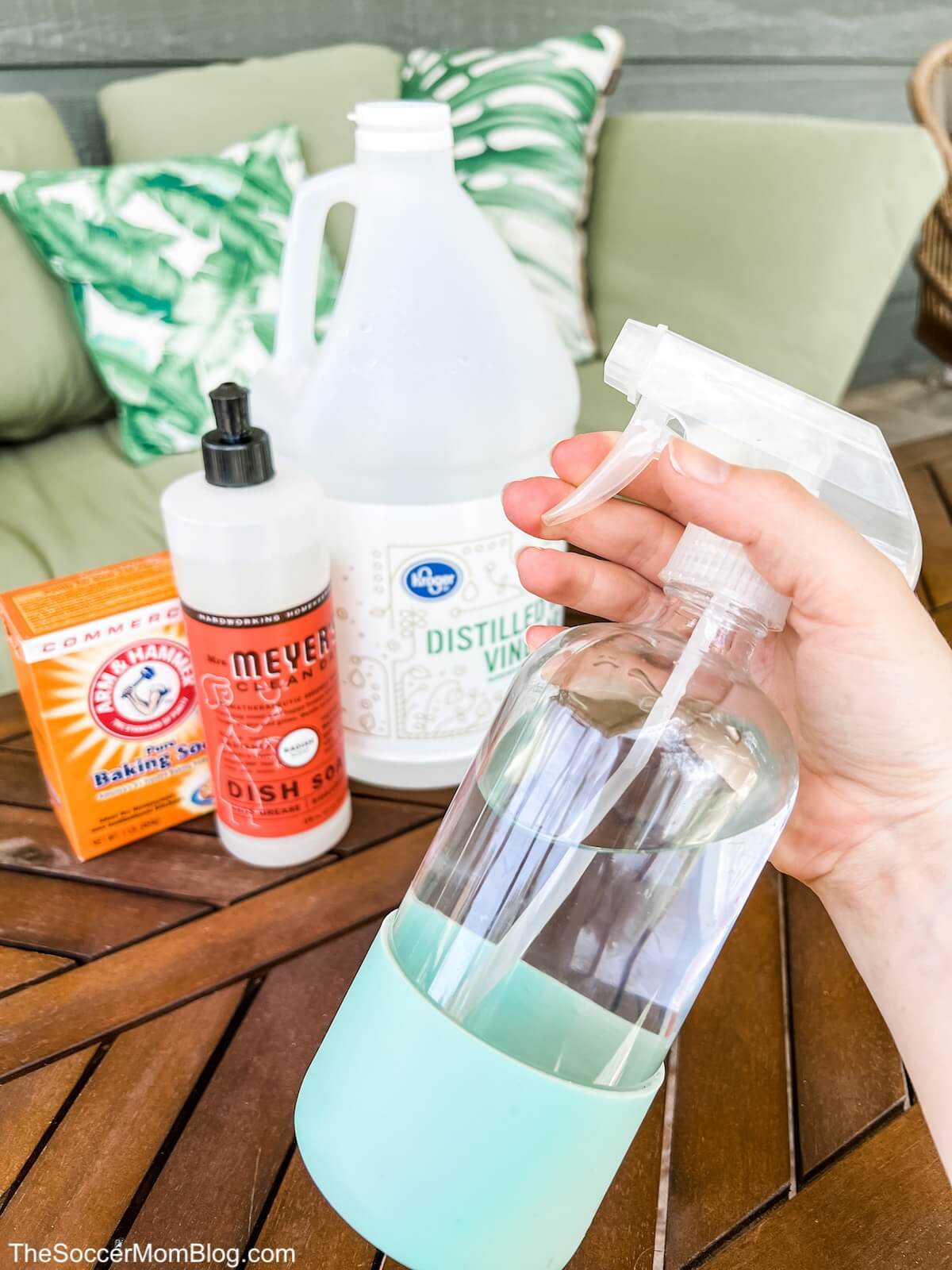Using ant spray indoors can be safe if you choose the right product and follow the label instructions. Always ensure the area is well-ventilated and avoid contact with food surfaces.
Ant infestations in the house are a common concern for many homeowners. The safety of using ant spray within the home hinges on selecting a spray designed for indoor use. Such products are formulated to minimize risks to humans and pets, provided they are applied according to the manufacturer’s guidelines.
It’s critical to ventilate the treated space and keep children and pets away until the spray has dried. Choosing ant sprays with natural ingredients can also be a safer option for those particularly concerned about chemical exposure. Remember, effective ant control often requires more than just a spray; maintaining a clean environment and sealing entry points are key steps to prevent future infestations.
The Rising Concern Over Indoor Insecticides
Imagine a quiet evening at home, disrupted by the sudden sighting of ants marching across your kitchen counter. Reaching for ant spray seems like the quickest solution, right? While it offers instant gratification, the growing concern for health and environmental safety calls into question the wisdom behind this common practice. Let’s discuss the implications of using chemical-based insecticides within the confines of our home.
Health Impacts Of Chemical Usage
Indoor insecticides might solve one problem but create another. Their chemical components can affect our health. Here are key points to consider:
- Toxic Air: Spraying releases chemicals into the air we breathe.
- Surface Residue: Chemicals linger on surfaces, posing risks upon contact.
- Accidental Ingestion: Especially dangerous for children and pets.
- Long-term Exposure: Consistent use might lead to chronic health issues.
In homes with kids, the elderly, or people with respiratory issues, the dangers escalate.
Environmental Considerations
The chemicals in ant sprays don’t stop at our doorstep. They have lasting effects on the environment. This table illustrates the concerns:
| Environmental Factor | Impact |
|---|---|
| Air Quality | Chemicals contribute to indoor air pollution. |
| Water Contamination | Chemicals can seep into groundwater. |
| Wildlife Health | Chemicals may harm non-target organisms. |
| Soil Fertility | Can disrupt soil ecosystems and fertility. |
Considering these factors, it’s crucial to opt for safer alternatives to chemical sprays. Natural repellents, proper sanitation, and sealing entry points can be quite effective. They safeguard our health and protect the world around us.
Types Of Household Ant Sprays
When ants start to become uninvited guests in our homes, reaching for an ant spray seems like a quick solution. Yet, homeowners often wonder about the kinds of ant sprays available and their safety. Understanding the different types of ant sprays can help you make informed choices for your household’s well-being.
Chemical-based Insecticides
Many ant sprays contain strong chemicals to kill ants. Listed below are common types found in these insecticides:
- Pyrethroids: Synthetic chemicals similar to natural insect-repelling compounds.
- Neonicotinoids: Disrupt the nervous system of insects, leading to paralysis and death.
- Organophosphates: Interfere with neurotransmission in pests, effectively eliminating them.
Take precautions when using these sprays. Keep away from food, pets, and children.
Natural And Organic Options
For those seeking safer alternatives, several natural and organic options exist:
| Ingredient | Benefit |
|---|---|
| Essential Oils | Non-toxic and can deter ants with their strong scent. |
| Vinegar | Disrupts ant pheromone trails and cleans surfaces. |
| Diatomaceous Earth | Powder that causes dehydration in insects, leading to their demise. |
Opting for natural sprays may require more frequent application but offer peace of mind.
Safety Protocols For Using Ant Spray Indoors
Discovering ants crawling across countertops and floors can be a nuisance, prompting many to reach for ant spray to regain a pest-free home. Ensuring safety while using such sprays is crucial, especially when applied indoors. Adhering to the proper safety protocols can mitigate any potential hazards, making your ant battle both effective and secure.
Proper Ventilation During Application
Adequate air circulation is paramount while using ant spray inside your living spaces.
- Open windows and doors to allow fresh air to enter.
- Turn on fans to help disperse any chemical odors.
- If possible, leave the area to let the spray settle after application.
Safe Storage Practices
Post-use, storing ant spray correctly ensures safety and maintains its effectiveness.
- Keep sprays out of reach from children and pets.
- Lock the products away in high cabinets or dedicated storage areas that are inaccessible to vulnerable family members.
- Check for proper sealing to prevent accidental leaks and odors.
Precautions For Households With Children And Pets
Extra care is essential in homes with young kids or pets. These measures will help protect the vulnerable.
- Always read and follow label instructions meticulously. This is non-negotiable.
- Ensure the treated area is off-limits to children and pets until it’s safe.
- Consider non-toxic alternatives that are safe for pets and children.
- Store ant sprays in locked cabinets post-application.

Credit: www.amazon.com
Alternatives To Spraying Ants Indoors
Welcome to the insightful world of Alternatives to Spraying Ants Indoors. Safety concerns may deter you from using conventional ant sprays. Exposing family members and pets to harsh chemicals is a valid worry. Let’s explore some smart strategies that keep ants at bay without compromising the health of your household.
Preventative Measures To Deter Ants
Preventing ants from invading your space is the first line of defense. A clean house is less inviting to these pesky intruders.
- Clean spills immediately to avoid attracting ants.
- Seal food containers and refrigerate perishables to cut off their food source.
- Dispose of garbage regularly and use bins with tight-fitting lids.
- Seal cracks and crevices where ants enter with caulk.
- Avoid leaving pet food out for long periods.
Non-toxic Home Remedies For Ant Control
You can control ants with items already in your home. These methods are safe for your family.
| Ingredient | Usage |
|---|---|
| Vinegar | Mix with water and spray on ant trails. |
| Lemon Juice | Use at entry points to disrupt scent trails. |
| Baking Soda & Sugar | Combine equal parts and leave where ants travel. |
| Diatomaceous Earth | Spread a thin layer along paths and entry points. |
| Peppermint Oil | Apply on ant routes for its repellent properties. |
Sprinkle cornmeal where ants crowd; they can’t digest it. Place cucumber peels in affected areas; ants avoid the bitter scent. Cotton balls soaked in essential oils like clove or eucalyptus may repel ants too.
Professional Pest Control Versus Diy
An ongoing battle with ants in the home can be frustrating. Homeowners often ponder whether to tackle the problem themselves or bring in professionals. Professional Pest Control versus DIY is a common dilemma faced when dealing with these pesky intruders. Let’s dig deeper into the world of ant control and compare the pros and cons of each approach.
Evaluating The Effectiveness Of Professional Services
Professional pest control companies bring a wealth of knowledge and resources to the table. They are equipped with advanced tools and pesticides. These may not be readily available to the average homeowner. Experts can identify the ant species and understand their behavior patterns. This ensures a targeted and long-lasting solution.
- Use of eco-friendly and pet-safe chemicals
- Guaranteed results with follow-up treatments if necessary
- Expertise in handling large-scale infestations
- Structured plans that include prevention techniques
Comparing this with over-the-counter sprays, professional services have a higher success rate. One must consider the long-term benefits of these services.
When To Call In The Experts
A DIY approach might seem like a cost-effective solution at first glance. But certain infestation levels or ant species require professional intervention. Here’s when one should seek help:
| Indicator | Action Needed |
|---|---|
| Recurring Ant Sightings | Expert assessment and treatment |
| Ant Paths inside the house | Professional elimination of pheromone trails |
| Property Damage or wood shavings | Immediate call to pest control |
| Large Ant Colonies in or around the home | Professional grade solutions |
While applying ant spray may grant temporary relief, expert involvement is a game changer. Assessing the situation accurately and seeking professional help when necessary can protect your home in the long term.

Credit: thesoccermomblog.com

Credit: www.amazon.com
Frequently Asked Questions For Is It Safe To Spray Ant Spray In The House?
Is It Safe To Use Ant Spray Indoors?
Using ant spray indoors is safe if you follow the product’s instructions carefully. Ensure good ventilation, keep pets and children away during application, and avoid direct contact with sprayed surfaces until dry. Always choose sprays designed for indoor use.
Is Ant Spray Harmful To Humans?
Some ant sprays contain chemicals that can be harmful to humans if ingested or inhaled. Always use them according to the label instructions and ensure good ventilation.
How Long Until Ant Spray Is Safe?
Ant spray typically becomes safe after it dries, usually within 2-4 hours. Always check the product’s label for specific instructions and safety guidelines.
Is It Safe To Spray Bug Spray Indoors?
It is generally safe to use bug spray indoors, but always follow the product’s label instructions. Ensure proper ventilation, avoid direct inhalation, and keep away from food, children, and pets.
Conclusion
To summarize, using ant spray indoors can be safe with proper precautions. Always follow label instructions and ensure good ventilation. Consider natural alternatives if safety is a concern. Remember, managing an ant infestation effectively doesn’t compromise your household’s wellbeing. Choose wisely for a pest-free, healthy home environment.

I’m MD Tanvir, and I bring years of expertise gained from working closely with pest control companies to the forefront. My journey in the industry has inspired me to launch Bug Battler, a platform aimed at equipping people with the know-how to combat pests autonomously. Through Bug Battler, I aim to empower individuals with practical insights to tackle pest infestations effectively.

